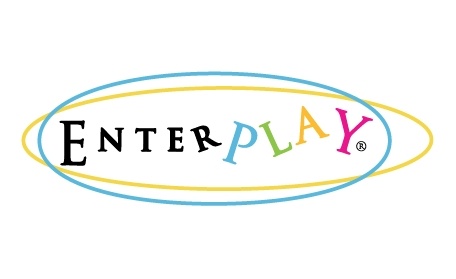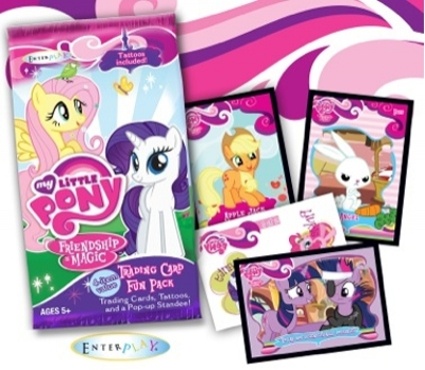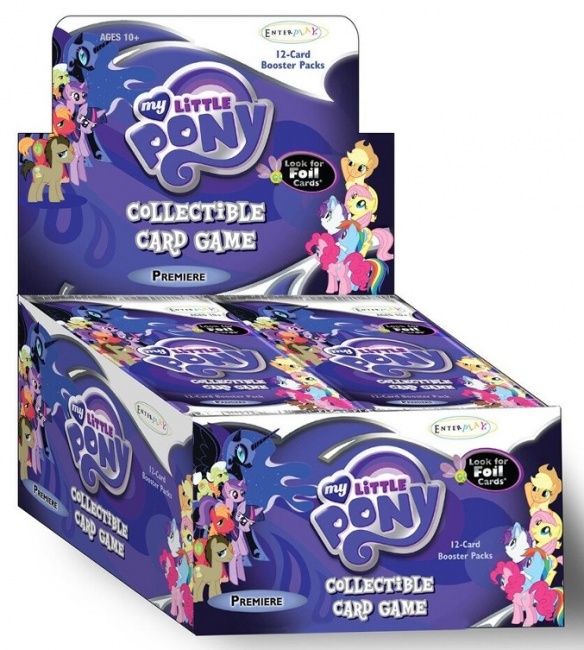In Business 3x3, a business retailer or executive will share their experience with three things they’ve done right, three things they’ve done wrong, and what else they’ve learned along the way.
From 2006-2019, Dean Irwin got to run his own company. Today, he’s "humbled," and looking to see what his next thing will be.
Irwin helped found and run Enterplay, the trading card, collectible card game and other-small-collector-thing company that held licenses that ran the gamut from Nintendo and Build-a-Bear to My Little Pony and Major League Baseball. Irwin had sales experience in audio equipment and high-end home theaters when fate and a burgeoning marketplace struck.
"I set up a home theater for a customer," Irwin recalls today. "I took him some 3D drawings of what his loft would look like with the theater installed. He offered me a job that day. I didn’t even get to show him the drawings!"
The job was with Decipher, the company that was doing the hyper-popular Star Trek: The Next Generation CCG, and later added Star Wars and Lord of the Rings.
"They had rapid growth, and they needed somebody," Irwin recalls. "So I ended up being the sales director there. I set up their first formal authorized distributor program, and ultimately, I was responsible for all their global sales."
Decipher led to Nintendo, where Irwin went from being a national sales manager to working on global licensing and new business. In the course of traveling the globe, meeting manufacturers and surveying the market, an epiphany hit Irwin.
"There was a opportunity to do trading cards and other small products for Nintendo," he says. "So I pitched the idea of starting Enterplay, and in 2006, we launched with our first product."
Irwin started Enterplay with two partners, and by 2009, was the sole owner. The rough seas of business ran the company aground in 2019, but along the way, Irwin learned a lot, which he’s happy to share…
THE GOOD
MAINTAIN BRAND INTEGRITY
A licensee has to be more than just a jobber, to Irwin’s mind.
"When you’re making a product, you have to dive right in and really understand what it is, the spirit of it, the history of it, what it means to fans," he says. "We took pride in making great products and fun products, and the way you do it is to be at the core of what makes that brand special."
Irwin feels that you get points for getting it right… and avoid losing points for getting it wrong.
"Not only will you make a good product by remaining true, but core fans will hate it when you distort the art or write something that is not wholly accurate," he says. "So we always tried to maintain that brand integrity, and became a fan-favorite."
HIRE CORE FANS
A great way to maintain brand integrity? Hire the people who are your most likely customers.
"In geek fandom, core fans are experts, and they want everything to be exact," Irwin says. "With our first Mario product, we actually had a guy from the Treehouse at Nintendo [the company’s product development division] write the product for us. Few people could have known the brand better."
Irwin struck gold again at the 2012 Toy Fair, with mock-ups of as-yet unproduced My Little Pony trading cards at the Enterplay booth.
"Before you knew it, people were seeing it, bringing other people back, taking pictures and asking questions," he says. "We hired a fan right there on the spot to help us find more fans, and she developed a team we used to develop that product."
The deeper the dive, the better.
"We didn’t understand the brand like they did, and they had the deepest passion for it," Irwin says. "They helped write the product; they added Easter eggs that were fun for the fans. Working with that fandom, the My Little Pony fans, is probably the most satisfying thing I’ve ever done. And by taking this approach, we won Hasbro’s award for best brand execution that year."
EXPLAND THE BRAND DOWN THE LINE
When you have a product that works, the product next door might work as well. Irwin saw the connection when he went to his first Brony con ("And by the way, it was awesome," he says) with the MLP trading cards.
"In meeting all these people, I realized they were gamers, so I thought there might be an opportunity for a trading card game," he says. "It seemed ridiculous to some people right off the bat because this was essentially a guy’s product based on a little girl’s property, and it didn’t seem like an easy sale. But it made sense to me. It seemed like a fit."
Irwin went to Hasbro to pitch it, and ran into a certain resistance.
"They have 25-30 people there, a few people from every department in the room," he recalls. "Most of them had already pre-determined that this was a bad idea. But luckily, we brought a Brony with us. This guy was like an encyclopedia. They would counter with a reason why we shouldn’t do this, and he would say, ‘Well, that’s really not an issue because that only happened for a couple seconds in episode 2 of season 1,’ that kind of thing. He was really awesome."
Long story short? Enterplay did the presentation, and the product was greenlit.
"The room was literally high-fiving at the end of the meeting," Irwin recalls. "It was awesome. So we were able to develop the My Little Pony CCG. But that couldn’t have happened without really getting to know the fans and who they are."
THE BAD
DON’T DIE ON THE HILL OF ORGANIZED PLAY
The triumph of the My Little Pony CCG quickly led to dismay.
"When we developed the My Little Pony game, I had been doing this for a long time, and I knew that you had to develop a strong, organized play program so that players and retailers have a strong treason to go play every week," Irwin says. "OP programs are essential to the development of a strong game, and I knew that as well as anybody."
But again, the MLP fan base was unique.
"Some of them are not competitive," Irwin says. "They just like to participate in the thing. So I had a website developed to support organized play that would give points for winning, for participation, random points, just to make it a lot of fun. I think the website cost us $50,000 to develop."
The problem? Hasbro never approved the OP program and site.
"They had all kinds of questions, largely centered around the safety of kids," Irwin recalls. "We spent years going back and forth and couldn’t come to approval. It was horrible not just for my business, but also for fans and retailers. They really wanted that community to grow, but it just couldn’t happen with our organized play this time."
CONTROL INVENTORY
Up-front costs are a gamble, and inventory languishing in a warehouse can make a bad bet even worse.
"Inventory can be the demise of any company," Irwin says. "It would be interesting to know how many CCG companies it’s taken down. I was committed that it wasn’t going to happen to me, but…for various reasons, we made too much product."
Enterplay’s My Little Pony CCG was supposed to launch with global distribution, but the company didn’t have the rights for global yet.
"We literally had a million-dollar purchase order from Europe and in our business… we don’t get million-dollar POs," Irwin says. "Walmart doesn’t give us million-dollar purchase orders. Unfortunately, we had to turn down and reject the PO. It took probably two years to get through the process of having people agree that having global distribution made sense for the game and the brand. It created an enormous inventory problem because… we made the product."
And Irwin knows too well the problems of carrying inventory.
"It’s not just the financial loss of too much product and trying to sell for pennies on the dollar if you can. It’s the cost of freight, storage… it can kill you."
DON’T MISS DEADLINES!
This one is axiomatic, but Irwin reminds us that your deadline is someone else’s deadline, too.
"It’s not just bad for the company that misses the deadline," he says. "It’s the distributors, the retailers, the consumers, and on down the line. You can lose interest in a product. The effects can be long-lasting if you don’t hit the deadline."
Reasons may be myriad, but excuses have to stop somewhere.
"Some reasons are your own fault, and I have to take that," Irwin says. "I’m responsible for it. Sometimes it’s out of your control. One time, we submitted a trading card set for approval and normally it would take no longer than two weeks. The previous product we sent to this licensor literally took 10 minutes and we had full approval. But this one took over six months to get approval. We launched the product and it turned out to be successful, but there’s no doubt it could have been more successful if we had launched it on time."
In whatever he does next, Irwin will be committed to the date.
"Everyone has to be aware there’s a deadline, and be committed to it," he says. "No matter whether it’s finance, vendors, licensors, your development team, sales team… everyone has to be committed to it so you can hit it. It’s just how it is: You have to be committed to the deadline."
AND WHAT ELSE?
"You learn from bad things. I don’t ever remember waking up the middle of the night stressing about things I did right. So… that’s where you learn how to do things better."
"It’s very hard to do. It’s very humbling. Nintendo no longer wanted to support trading cards and our category. It’s understandable. In their business, video game developers get approval over trading cards, and they didn’t want to send 120 trading cards over for approval to a group that was always behind on deadline and take time away from developing video games."
"The Nintendo thing wasn’t the one thing that took us down. In September 2017, the My Little Pony movie came out. We were making a number of different products. We had projections, and everyone seemed to love the products. Our forecast was to do about $5.5 million. I think we wound up doing about $300,000. We were accustomed to Walmart and Target buying whatever we offered. We offered two SKUs for everything we did. And usually both chains would buy both SKUs. But what suddenly happened was one would buy one, and the other would buy the other, so our cost of goods went up dramatically."
"I ended up putting my own money in as Enterplay’s money was depleted. I kept feeding it and feeding it and feeding it. We had contracts with minimum guarantees coming up, but making the guarantees was no longer reasonable. We just didn’t see light. I was forced to close in October [2019]."
"It was always mine, right? So I guess ultimately it was all my money. But I never really looked at it that way."
"I don’t want to make it seem like we were just the My Little Pony company, but it was one of our first licenses, and it was very important to us. We would do 60-odd SKUs on a lot of properties, but we did 100-plus on My Little Pony. We had hobby exclusives, Target exclusives, Walmart exclusives, a Hot Topic exclusive. For a period of time, if we made it, they would buy it."
"Don’t rent. Buy. No matter what happens to your business, real estate will always have value. At the end, it might be your whole value. It might be your retirement."
"When I started at Decipher, we had 80 distributors. I made a commitment to meet my distributors at their business and get a feel for what they were doing. So I’d go to the location and work with the sales team for an hour. I’d go out and pick-and-pack an order with them. I figured, how else am I going to understand the process?"
"We finally donated a truckload of [My Little Pony CCG] product to a fan group that did organized play on their own. We weren’t allowed to do it, so they did. In retrospect, I should have just turned it over to the fan group right away, let them do it."
"There are so many great people in in this industry. Passionate people, smart people. What’s better than meeting someone who shares the same passions you do?"
"I still love this industry. I could talk all day."

The Rise and Fall of the 'My Little Pony CCG' and the Company that Made It
Posted by Jim McLauchlin on February 19, 2020 @ 6:05 am CT






